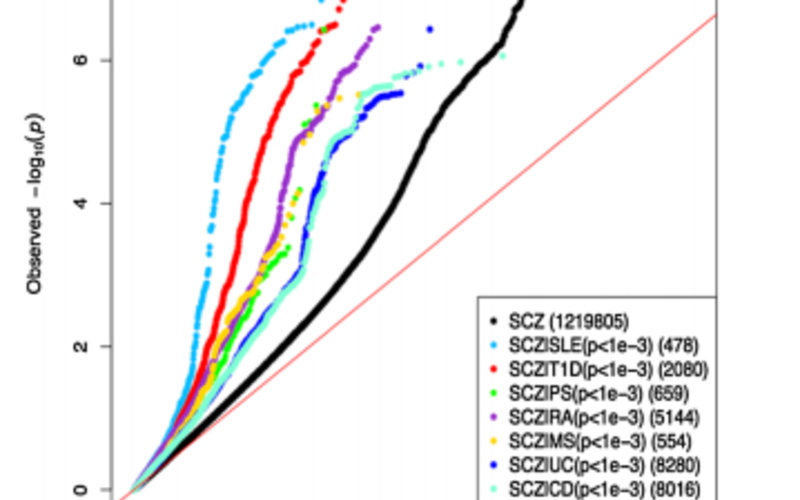September 15, 2015

(From the Yale Daily News) According to a recent Yale study, many common psychiatric disorders might be genetically linked to a variety of immune disorders.
Researchers at the Yale School of Public Health studied the genetic phenomenon pleiotropy — when one gene affects more than one phenotype — between five psychiatric disorders and seven immune disorders. After pairing the psychiatric disorders, including schizophrenia and depression, with immune disorders, such as rheumatoid arthritis and Crohn’s disease, researchers found a correlation between 24 of the 35 psychiatric-immune disorder pairs. The reason for this correlation, said study senior author Hongyu Zhao, was that some regions on the genome sequence code for both psychiatric and immune disorders, suggesting a possible relationship between the two.
“Perhaps the inspiration for the study was that this has been a question for decades and we were able to confirm that the major histocompatibility locus on the genome contributes to both immune and psychiatric disorders, establishing the possibility of a correlation,” said the study’s first author Qian Wang GRD ’18, who studies computational biology and bioinformatics.
According to Zhao, who is also a professor of public health biostatistics and genetics at the Yale School of Public Health, the research was made possible by the abundance of data based on recent genomic findings. For instance, knowing the 118 locations of schizophrenia genes on the genome makes it possible to compare if the same location codes for an immune disorder, Zhao said. Using that information, researchers found a positive correlation between genetic variants that, for example, simultaneously code for a higher risk of schizophrenia and a higher risk of Crohn’s disease or coded for prevention of both disorders, indicating a same-effect direction.
Original Yale Daily News Article